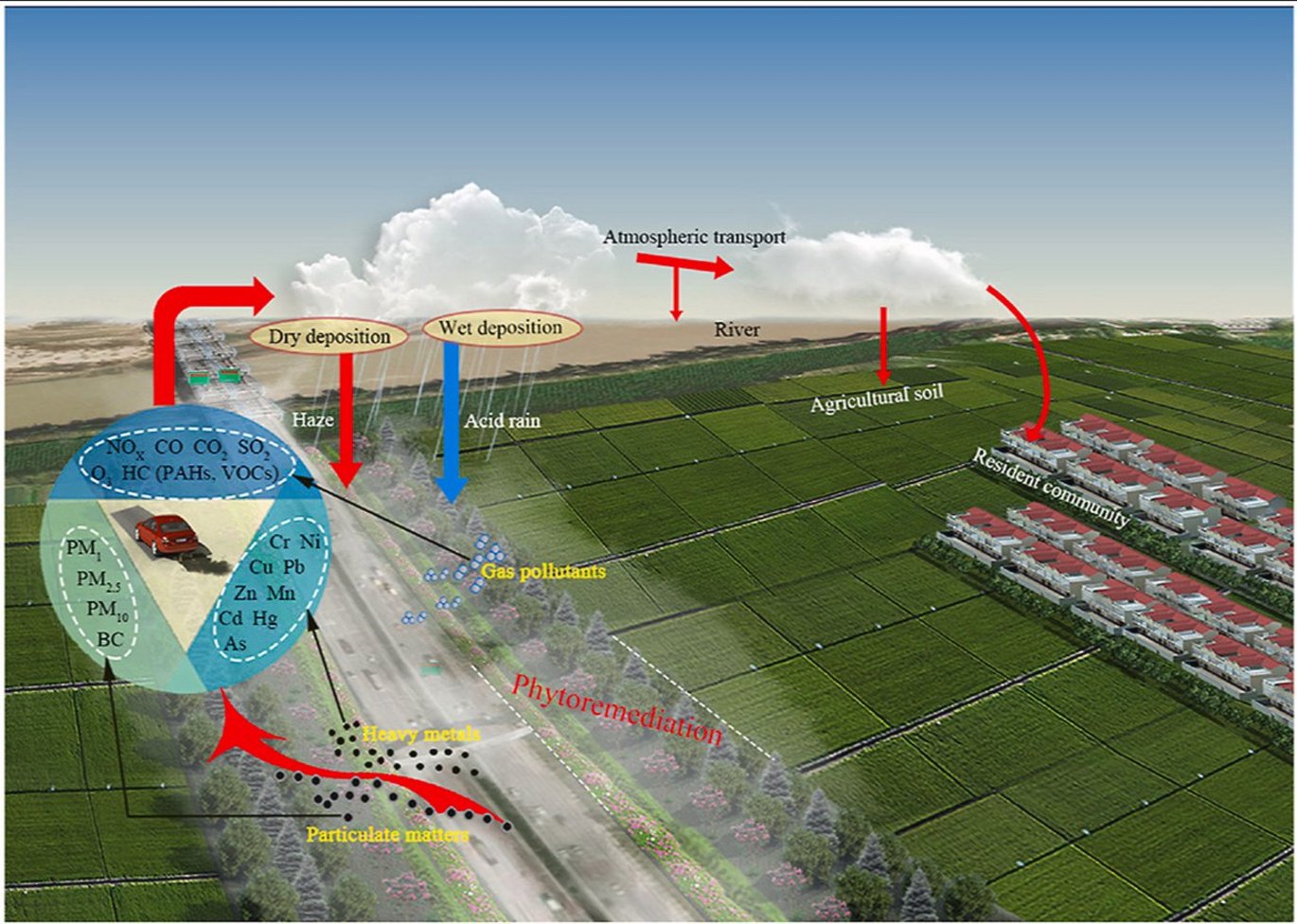Phytoremediation as a potential technique for vehicle hazardous pollutants around highways
New publication by Guo, K, Yan, L, He, Y, Li, H, Lam, SS, Peng, W & Sonne, C

Abstract:
With the synchronous development of highway construction and the urban economy, automobiles have entered thousands of households as essential means of transportation. This paper reviews the latest research progress in using phytoremediation technology to remediate the environmental pollution caused by automobile exhaust in recent years, including the prospects for stereoscopic forestry. Currently, most automobiles on the global market are internal combustion vehicles using fossil energy sources as the primary fuel, such as gasoline, diesel, and liquid or compressed natural gas. The composition of vehicle exhaust is relatively complex. When it enters the atmosphere, it is prone to a series of chemical reactions to generate various secondary pollutants, which are very harmful to human beings, plants, animals, and the eco-environment. Despite improving the automobile fuel quality and installing exhaust gas purification devices, helping to reduce air pollution, the treatment costs of these approaches are expensive and cannot achieve zero emissions of automobile exhaust pollutants. The purification of vehicle exhaust by plants is a crucial way to remediate the environmental pollution caused by automobile exhaust and improve the environment along the highway by utilizing the ecosystem's self-regulating ability. Therefore, it has become a global trend to use phytoremediation technology to restore the automobile exhaust pollution. Now, there is no scientific report or systematic review about how plants absorb vehicle pollutants. The screening and configuration of suitable plant species is the most crucial aspect of successful phytoremediation. The mechanisms of plant adsorption, metabolism, and detoxification are reviewed in this paper to address the problem of automobile exhaust pollution.
